Prof. Ivan Kiguradze obtained from Prof. Pavel Vlasak, the Vice President of the Academy of Sciences of the Czech Republic the Bernard Bolzano Honorary Medal for Merits in Mathematical Sciences, an honour awarded to distinguished scientists by the Academy of Sciences of the Czech Republic.
Professor Kiguradze was born in 1937 on January 12 in the village Khidistavi in Georgia in the family with a deep democratic tradition and seriously stricken by bolsheviks. In 1960 he graduated at the Tbilisi State University and in 1963 he defended his candidate thesis at the same university. Soon he became one of the leading Georgian persons in the theory of differential equations. In 1968, by decision of the Supreme Certification Commission of the Higher Education Ministry of the USSR, he received the Docent Certificate and in 1972 he received the degree of Doctor of Sciences. In 1973 he became the chair of the Department of Ordinary Differential Equations of the Vekua Institute of Applied Mathematics at Tbilisi State University and in 1976 he was appointed full professor of mathematics. In 1989 he was appointed Director of the Mathematical Institute of the Georgian Academy of Sciences and he was serving in this position till the last year. Since 1993 he is a member of the Georgian Academy of Sciences.
Above all, however, he is a distinguished scientific personality in several fields of the theory of ordinary differential as well as functional differential equations. As such, he is recognized and respected throughout the mathematical world. He is author or coauthor of more 150 papers published in mathematical journals of world significance. Further, he is author or coauthor of 10 monographs and about 100 of papers published in conference proceedings, some of the latter being extensive and important works of monographic character.
Professor Kiguradze has been mentor of more than 30 PhD students, many of who already obtained the title of Doctor of Sciences and have become leading personalities in their fields of research.
Ivan Kiguradze gained fame in particular by excellently mastering the technique of a priori estimates of solutions of differential inequalities and applying it to the study of initial and boundary value problems for differential equations and systems with rapidly growing right hand sides or with right hand sides satisfying only one-sided growth conditions. His monographs from 1975 and 1987 were far ahead of their time and laid fundaments of the theory of singular problems that has recently attracted extensive attention of scientific public. He also developed a profound asymptotical theory of nonlinear equations of higher order and brought to light the deep relation between the asymptotical theory and the theory of boundary value problems. These results are included in another of his highly valued monographs, which appeared in Russian in 1990 and in English a year later. His contribution to the oscillation theory for differential and functional differential equations is generally considered to be of highest importance as well. As a rule, his results cannot be further improved. Such results are usually not very often quoted by followers. Nevertheless, the World of Science Citation Database registers more than 450 quotations of his contributions. The methods and techniques he has developed represent basic tools for specialists from many fields.
Professor Kiguradze has had long-lasting cordial relations to Czech Mathematics and has many close friends among Czech mathematicians. His first papers were inspired by works of Czech and Slovak mathematicians, as e.g. Kurzweil, Švec, Zlámal, Šeda and others. On the other hand, he later influenced several generations of Czech and Slovak mathematicians working in similar problems. It is also his merit that Czech mathematics in these fields has gained respect. He has written more than 20 papers in collaboration with Czech authors or those working in Czech institutions. He has continuous fruitful contacts with Czech mathematicians, his works are frequently used and cited by Czech specialists and he had numerous lectures at conferences that were organized in the Czech or Czechoslovak Republic. The most recent one took place just last week in Brno and prof. Kiguradze delivered there a plenary talk. Last but not least, let me mention that prof. Kiguradze is a member of the International Advisory Board of the Mathematical Institute of the Academy of Sciences of the Czech Republic.

|

|

|

|

|

|

|
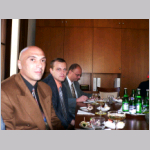
|
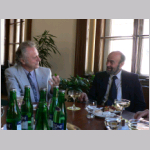
|

|
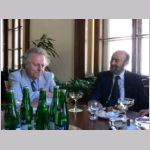
|

|
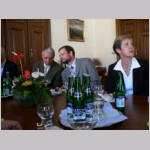
|
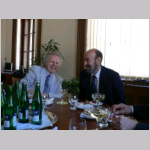
|
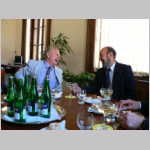
|

|

|

|
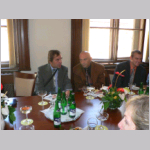
|
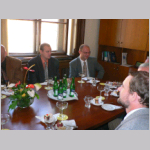
|

|

|
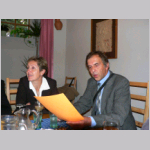
|

|

|
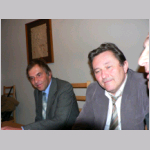
|

|
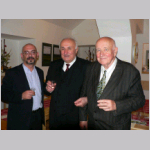
|
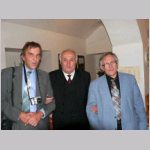
|
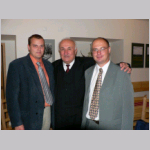
|

|
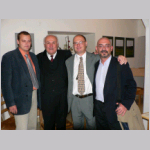
|